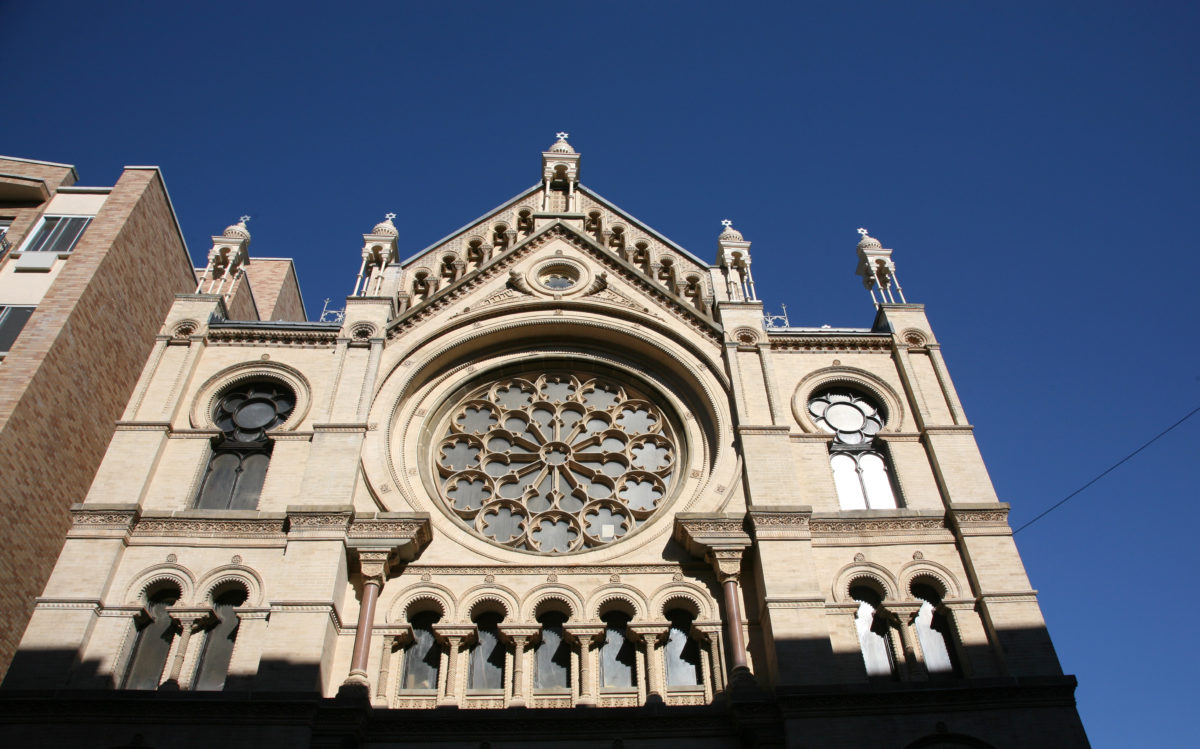I’ve stepped into the golden age of parenting. My youngest started kindergarten. It was a challenging adjustment, but now she is doing fine. Both my children have interests and friends and tell jokes at dinner. They capable of sleeping through the night in their beds (but unwilling to).
So here we were. After years of paying a small fortune for daycare, my husband and I joked about what we’d do with all our extra money when both of our kids are finally in public school. We chose to put some of it towards a trip to Disney World, because my family was due for some fun. We saved some. And with the rest, we joined a synagogue.
I’ve wanted to be part of a community for most of my adult life. For years, I felt like something was missing. But I hushed the nagging voice in my head. I had a baby to care for, and then there were two. When I went back to work, I didn’t have time to dwell on anything other than juggling my busy days.
My life eventually developed a rhythm, and my children grew. The voice in my head got louder and more insistent. We started observing Shabbat. We took the children to various synagogues in the area on the High Holidays. But it wasn’t enough. We found a shul in a neighboring town and it was everything we wanted: a large congregation with a lot of young families and a great Hebrew school. The cantor is a woman with a stunning voice. We were hooked.
Family services were scheduled for one Friday night each month. My husband and I looked at each other excitedly. “Let’s take the kids!” we said.
I took my older daughter’s hand as we walked into the sanctuary. We claimed seats near the front. I opened my prayer book, and tried to find the page. My husband looked instantly at ease. I envied him.
The sanctuary filled with the soaring beauty of the cantor’s voice. Other congregants sang along. My daughters both inherited their father’s ear for music, and picked up on the melody quickly. I, more anxious about the potential for mistakes, stayed quiet and then started to panic. I had been so determined to find a synagogue that I didn’t think about what would happen once we were there. I realized I had more to learn than I had ever imagined.
I glanced at my children. I wondered what kind of Jewish role model I would be for them—I, a woman that didn’t know what Shemini Atzeret was until I started writing for Kveller. Could I do it? I closed my eyes and prayed.
I was relieved that when my daughter started Hebrew school, she slipped right into the routine. She always liked to sing, but lately she opts for “Hevenu Shalom Aleichem” as she falls asleep. She’d happily show me her latest projects. Last week, she learned to write Aleph and Bet. I grinned at her, and told her that I was proud.
Her smile faltered. “But they’re the only two letters I know,” she said sadly.
I gave her what I hoped was a reassuring smile.
“That’s OK. You can learn,” I tell her. And I remind myself that I, too, can learn. Weeks of pent-up panic started to drain away. I make a mental note to find some adult Jewish education classes. I will revisit my ancient copy of “Jewish Literacy.” My children will never see a perfect Jewish mother, but they will certainly see one that tried.
We’ve attended quite a few services. My email inbox is filled with invitations and reminders for all kinds of events at synagogue. After services, I hear other people lamenting the challenge of too many holidays in such a short period of time. I read articles by authors that wish the festivals could be spread more evenly throughout the year. They don’t understand why it has to be this way.
I think I do.
Being Jewish in autumn prepares us for … life. It’s a crash course in how to juggle everything at once. So we celebrate and we apologize and we mourn. We build things and make them beautiful and we take them apart. We finish one task only to start another.








